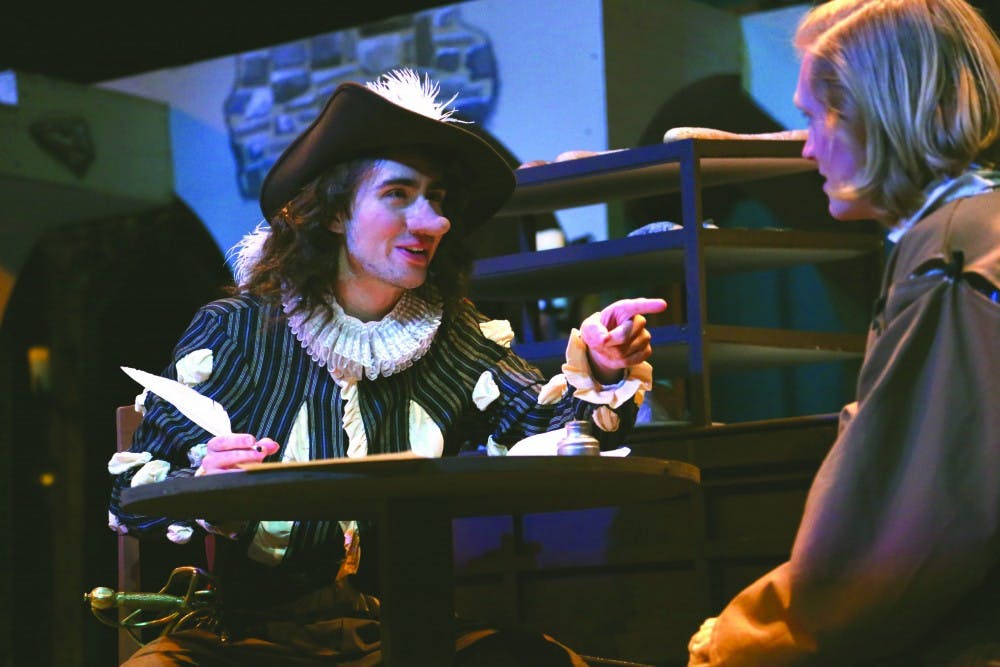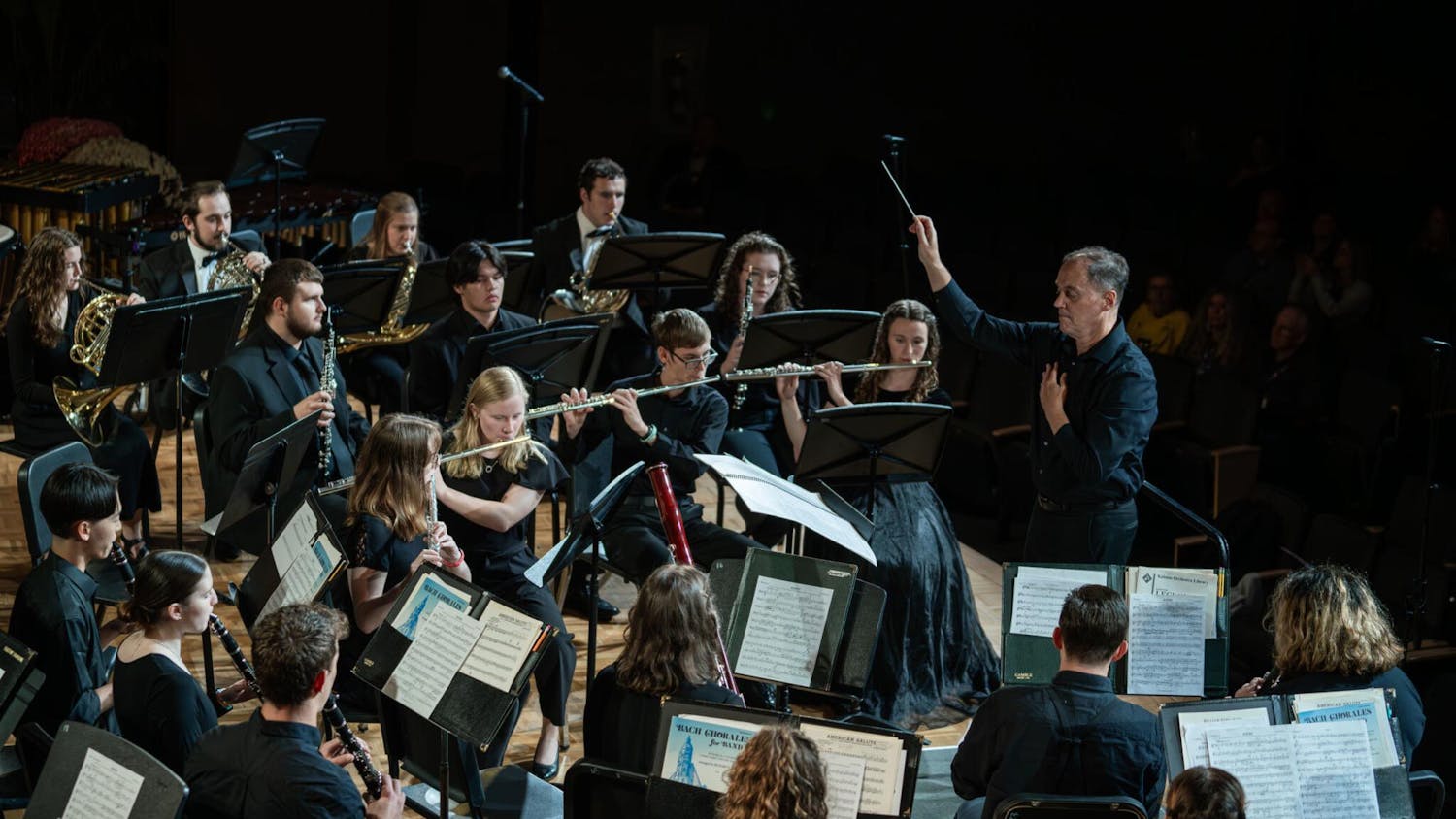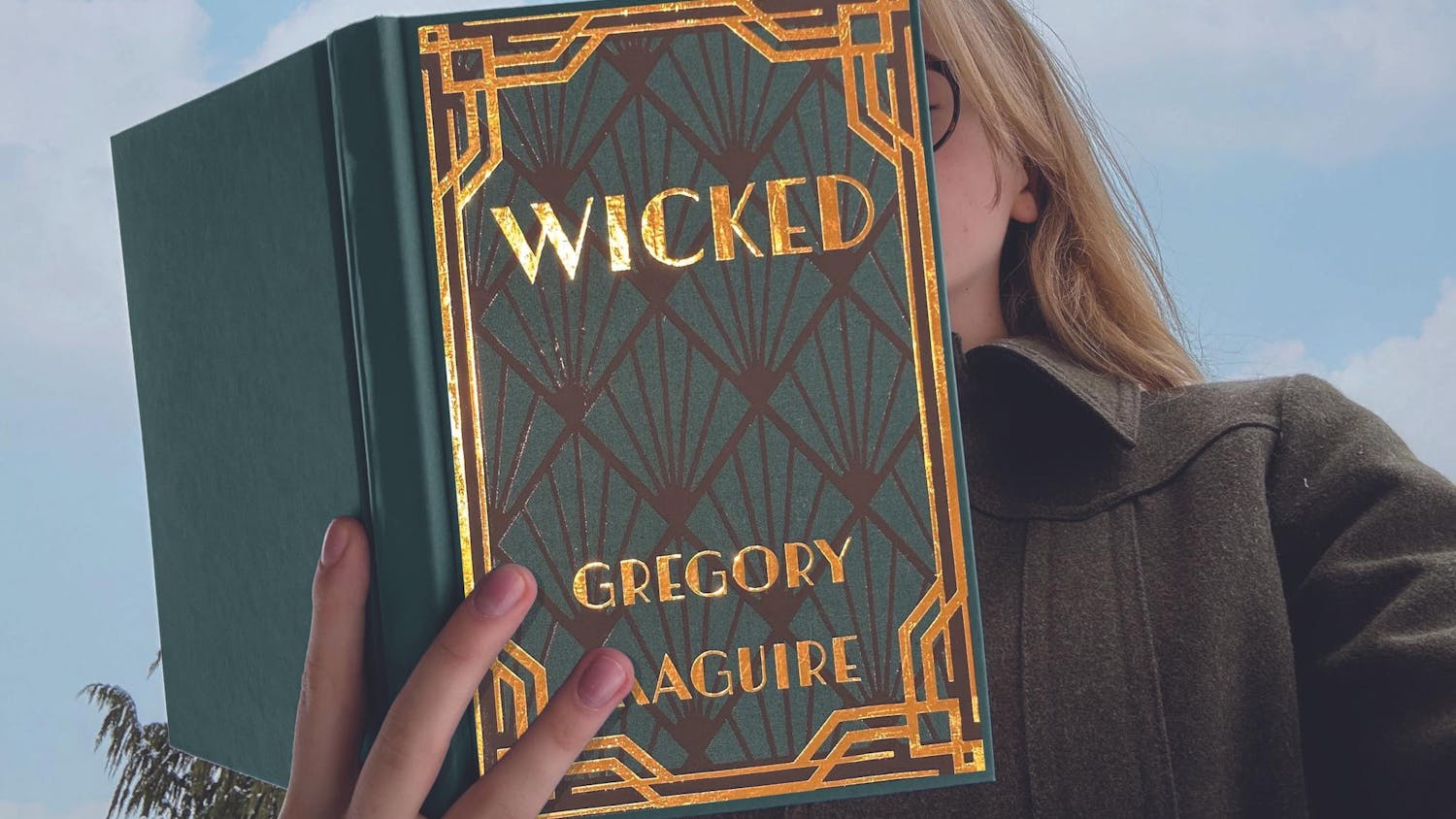By Elizabeth Hartmann | Contributor
Amid smoke, swords and gunfire, "Cyrano de Bergerac," a tale of love and beauty, is told under the whitewashed arches of Paris in 1640.
The comedic tragedy of "Cyrano de Bergerac," written by Edmond Rostand and translated by Anthony Burgess, is full of humor and heartfelt moments.
With candles flickering overhead and strands of French melodies filling the air, this classic romance will continue to unfold in Mitchell Theater tonight and tomorrow at 7:30 p.m. and on Sunday at 2 p.m. Swords and wits collide in this exquisite theater production that analyzes society's view of beauty.
According to Assistant Director and senior Erin Davis, the play is about two passionate men in love with the same woman. One is very beautiful on the outside, but empty-headed, while the other is a brilliant poet, but possesses an abnormally large nose.

"The play focuses a lot on inner beauty versus outer beauty and which one inspires true love," said freshman Jed Barber, who plays the villain Count de Guiche. "I feel like in a lot of ways . . . we still have trouble distinguishing what is valuable - a person's outside or inside character."
Cyrano de Bergerac, the charismatic hero, uses his clever wit and piercing poetry to make fun of his enemies and please Roxane, the woman he secretly adores. Cyrano's courageous exploits and brilliant satire win him both friends and enemies. The only thing keeping him from love is his nose.
Cyrano flaunts his bravery and intelligence like he wears the white plume on his hat - with panache. Panache, a word coined in this play, means flamboyant confidence, and is the embodiment of who Cyrano is on the inside.
"It (The panache) is sort of the representation of his proud soul," Barber said. "It is a very visible reminder of his inner nobility and beauty, although his outer appearance isn't what people would call attractive."
Cyrano desires to offer Roxane beauty while Christian de Neuvillette, handsome but empty-headed, longs to offer her intellect and wit. They realize that together, with romantic words joined to outer beauty, they can woo her heart. As a result, Roxane falls in love with Cyrano's words but Christian's looks.
"Roxane sees something in both men," said senior John Broda, who plays Christian.
Broda says this play is just as relevant now as it was when it was written, and it makes society ask, "What are our standards of beauty?" He also says, as a Christian, this play makes the viewer consider what beauty is in God's eyes.
Through "Cyrano de Bergerac," Taylor Theatre provides the perfect environment to examine the idea of beauty in an entertaining, hilarious way.
Davis is concerned people will miss out on this compelling production because they won't know what the play is about and will wait to see a different show instead.
"I know that people are stressed right now, and they want to see something that will make them laugh," Davis said. "This will make them laugh . . . it is a very funny play, but it will also get you thinking, so I'm hoping people will come to see it for one (reason) or the other."






